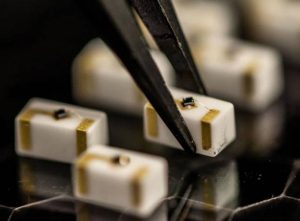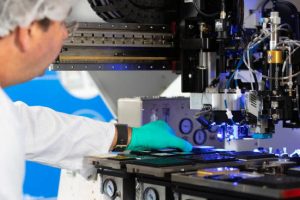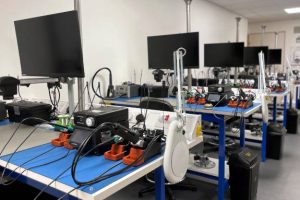
“The project is called ASISST – addressing shortages in semiconductor skills training – and will see the partners producing accessible, relevant semiconductor training courses to meet the specific requirements of employers in the semiconductor sector in order to increase the flow of talented people into the industry,” according to Phlux. “Semiconductors have been identified as one of the five technologies of tomorrow by the UK Government. They are critical to the UK’s economic and national security and to the strategic advantage we will secure on the global stage.”
Phlux links the shortage of skilled semiconductor professionals to the shortage of students choosing STEM (science, engineering, technology and mathematics) careers, and further to an absence of the dedicated teaching resources and facilities for students to steer them towards the STEM subjects – as well as a lack of awareness of semiconductor technology.
ASISST will raise public awareness of the importance of semiconductor technology in the UK by creating free on-line courses covering the different aspects of the semiconductor industry, from R&D, product development and manufacture.
There are also plans for developing a remote lab for semiconductor device testing aimed at students in year 10 and above which will focus on practical learning.
“This project is in complete alignment with the recent UK National Semiconductor Strategy, said Bay Photonics CTO Andrew Robertson. “We are focused on providing semiconductor training skills that the UK semiconductor industry is crying out for to ensure we remain competitive in this strategically important and rapidly growing market.”
Worth £405,840 and provided through Innovate UK, Sheffield’s Department of Electronic and Electrical Engineering and Department of Multidisciplinary Engineering Education will steer the project.
 ASISST project team next to industrial standard teaching clean room at the University of Sheffield (l to r: Dr Raja Toqeer, Prof Jo Shien Ng, Dr Ian Farrer, Dr Gavin Williams)
ASISST project team next to industrial standard teaching clean room at the University of Sheffield (l to r: Dr Raja Toqeer, Prof Jo Shien Ng, Dr Ian Farrer, Dr Gavin Williams)
“This project offers a wonderful opportunity for the two engineering departments to work with two highly engaged SMEs to help raise awareness of semiconductor technology and the career options in the UK,” said Sheffield Professor Jo Shien Ng. “We hope to share with the UK public the exciting semiconductor industry and technology in the UK that most people don’t think about and raise the profile of the industry.”
University of Sheffield spin-out Phlux Technology designs infrared sensors using AlGaAsSb as the multiplication material (top photo)
 Bay Photonics provides photonic integrated circuit design and manufacturing services (Bay automatic wire bonder right).
Bay Photonics provides photonic integrated circuit design and manufacturing services (Bay automatic wire bonder right).
 Electronics Weekly Electronics Design & Components Tech News
Electronics Weekly Electronics Design & Components Tech News



